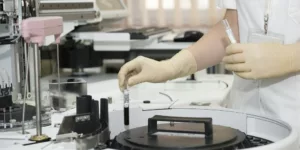There is no doubt that there is a pressing need for a transformed health system in Europe, and the singular means to achieve this is to take a daring approach. Carving out a healthy future for Europe is the main concern of European Health Forum Gastein VP, Karin Kadenbach MEP (S&D, AT).
European societies have changed over the last decades on numerous fronts. A wide range of challenges and opportunities have been hatched by innovation, the digital revolution, and globalization. Not surprisingly European lifestyles have subsequently also transformed as has the burden of disease. The increase in non-communicable diseases (NCDs), for example, show how different societies compare with how they were several decades ago. It also illustrates the extent to which Europe’s health systems, with their limited budgets, are being pressured to keep pace and transform. Infectious diseases were once the major killer in Europe and globally, but NCDs have taken the baton. The European Commission says that NCDs in Europe now account for 555,000 premature deaths annually, and money alone cannot deliver a real response.
According to Kadenbach, it’s time to think creatively and be brave enough to overhaul prevailing structures as well as to create processes and systems that focus on prevention that offer in-time access to treatment and care and that answer constantly changing needs. There is also a need for systems that can meet future challenges.
The October 2018 European Health Forum Gastein (EHFG) will focus on sustainable development and health, emphasizing the importance of making courageous political choices for the 2030 Agenda. Kadenbach said she welcomes fearlessness. The political mood pervading countries in European is tempestuous and should be faced with a similar outlook. This is the right time to push for change given the European elections in May 2019 and approaching deadline to achieve the Sustainable Development Goals (SDGs). These goals acknowledge the need to be motivated and to incorporate health in all discussions and policies at all levels of politics. For example, antimicrobial resistance (AMR, which causes around 25,000 deaths a year just in the EU) cannot be tackled without including policymakers from other arenas (e.g. agriculture). A healthy population and a strong group of health professionals are crucial in managing the AMR threat. Teaching facilities have to be urgently set up to guide medical authorities on using antibiotics. There also need to be quick diagnostic tests set in place.
This is just one example. There is a wider challenge concerning health professionals. Numerous countries in Europe face different problems such as being short staffed and staff lacking skills. To tackle NCDs and AMR, and reach the SDGs, medical professionals must be skilled, well trained, make decisions based on evidence, and have the right equipment to provide suitable care.








